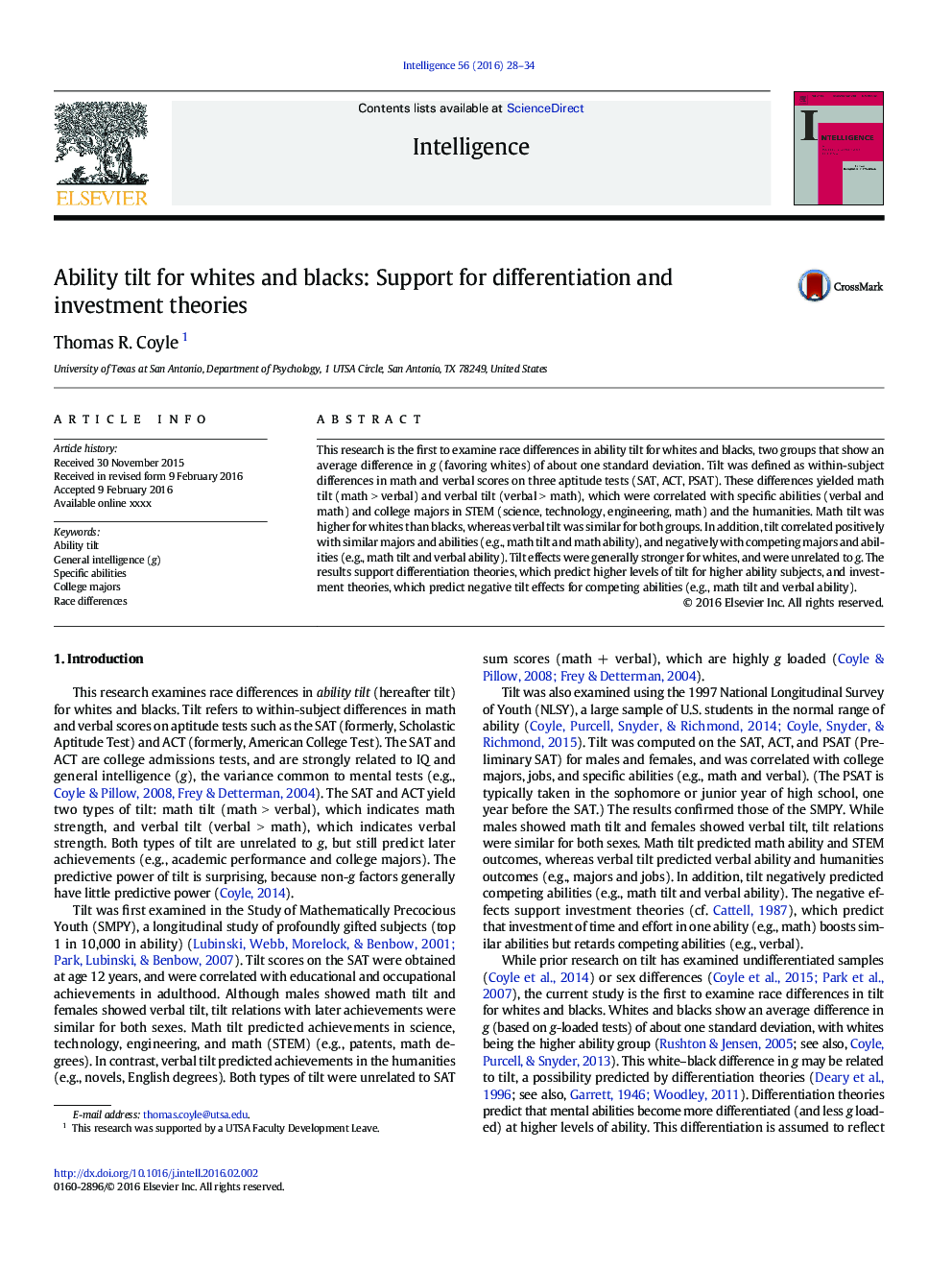| Article ID | Journal | Published Year | Pages | File Type |
|---|---|---|---|---|
| 7293194 | Intelligence | 2016 | 7 Pages |
Abstract
This research is the first to examine race differences in ability tilt for whites and blacks, two groups that show an average difference in g (favoring whites) of about one standard deviation. Tilt was defined as within-subject differences in math and verbal scores on three aptitude tests (SAT, ACT, PSAT). These differences yielded math tilt (math > verbal) and verbal tilt (verbal > math), which were correlated with specific abilities (verbal and math) and college majors in STEM (science, technology, engineering, math) and the humanities. Math tilt was higher for whites than blacks, whereas verbal tilt was similar for both groups. In addition, tilt correlated positively with similar majors and abilities (e.g., math tilt and math ability), and negatively with competing majors and abilities (e.g., math tilt and verbal ability). Tilt effects were generally stronger for whites, and were unrelated to g. The results support differentiation theories, which predict higher levels of tilt for higher ability subjects, and investment theories, which predict negative tilt effects for competing abilities (e.g., math tilt and verbal ability).
Related Topics
Social Sciences and Humanities
Psychology
Experimental and Cognitive Psychology
Authors
Thomas R. Coyle,
